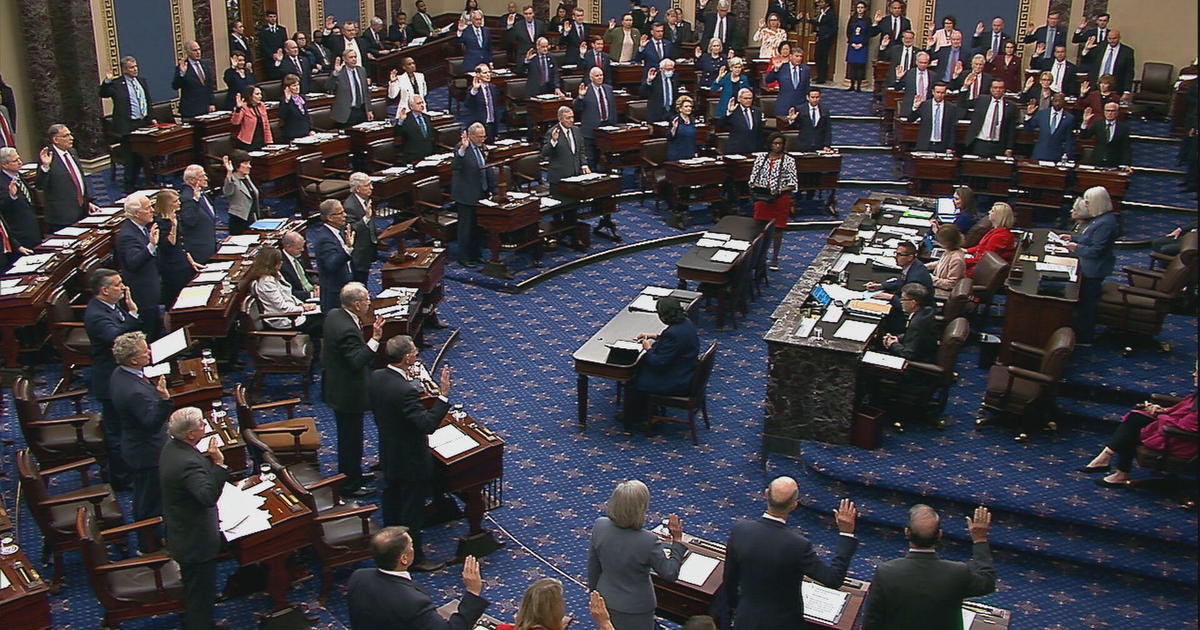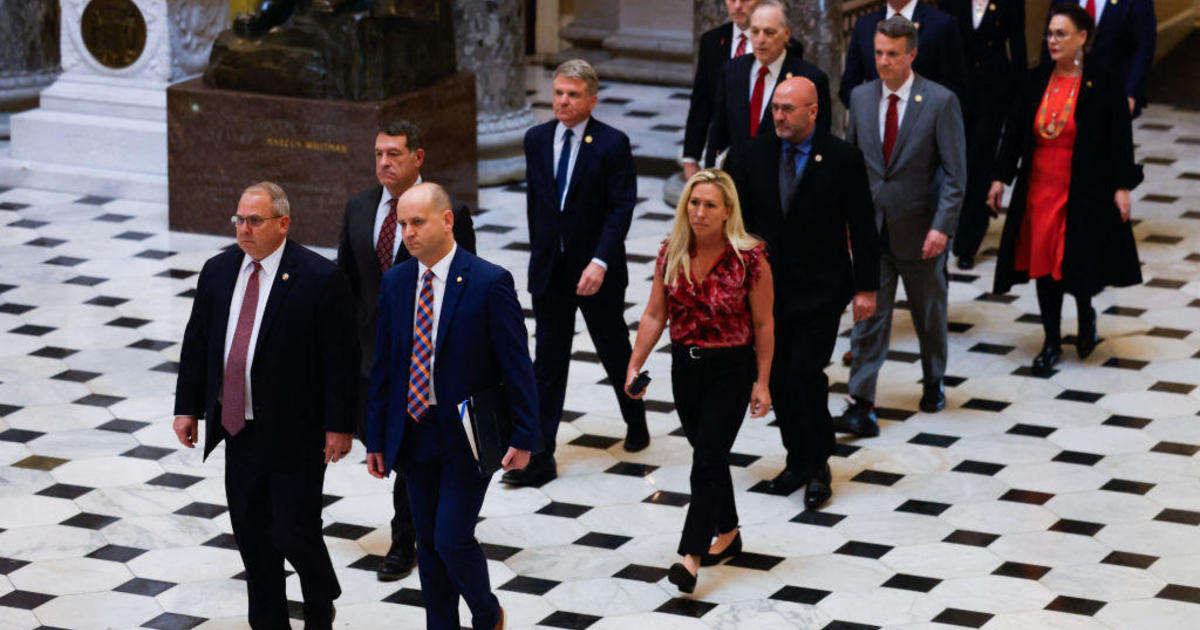Some GOP lawmakers call tax bill boost to big corporations
Sounding a discordant note among the positive talk on the tax bill, a number of Republicans are delivering a blunt assessment, casting the bill as a boost to big corporations and the wealthy instead of the middle class.
"Fundamentally if you look at the bulk of the bill, two-thirds of it, it's tied on the business side," Rep. Mark Sanford, R-S.C., said Tuesday as leaders in the House and Senate hailed their respective measures as an advantage for working Americans.
Asked why GOP leaders label it a middle-class tax cut, Sanford said, "There is certainly a chicken in every pot, in essence. But, again, look at where the big money is. The big money is on the corporate side."
Both the House and Senate have passed massive tax bills that would provide steep tax cuts for businesses and more modest tax breaks for families and individuals. The tax cuts in both bills add up to about $1.5 trillion over the next decade.
Congressional estimates show that taxpayers in every income group would initially see tax cuts, with the biggest cuts going to the wealthiest Americans. However, after several years, many low- and middle-income families would see tax increases, according to the analyses by the Joint Committee on Taxation, the official scorekeeper for Congress.
"We think that all Americans should be given lower taxes, and so there's still work to be done on tax reform," said Rep. Mark Meadows, R-N.C., chairman of the conservative Freedom Caucus.
The two chambers must reconcile their respective bills, and GOP leaders are intent on delivering a final package to President Donald Trump by Christmas.
"I call it the mixer," Trump said Tuesday. "It's a conference where everyone gets together and they pick all the good things and get rid of the things they don't like."
But days and nights of tough negotiations await the House and Senate.
Even Republicans who have defended the legislation have sometimes tripped over themselves.
A top Republican senator gained attention when he defended GOP efforts to scale back the federal estate tax because it helps those who invest rather than people who spend their money on "booze or women or movies."
"I think not having the estate tax recognizes the people that are investing as opposed to those that are just spending every darn penny they have, whether it's on booze or women or movies," Sen. Chuck Grassley, R-Iowa, told The Des Moines Register late last week.
Later, Grassley issued a statement saying his comments had been taken out of context.
"The question is one of basic fairness, and working to create a tax code that doesn't penalize frugality, saving and investment," Grassley said.
Some provisions appear ripe for change.
Republicans on both sides of the Capitol have slammed a Senate provision that would retain the alternative minimum tax for corporations, which is designed to make sure that corporations pay at least some tax. The House bill eliminates the tax.
House Majority Leader Kevin McCarthy, R-Calif., said keeping the corporate AMT would kill incentives for businesses to invest in research and development.
Sen. John Kennedy, R-La., said his top priority in the tax bill is to change the Senate version. Sen. David Perdue," R-Ga., said simply: "I would like it to be repealed."
Rep. Kevin Brady, R-Texas, the House's top tax-writer, said the corporate AMT and potential problems with it are high on the list of priorities.
"The House members ... feel strongly that the House position should be to repeal permanently both the individual and the corporate AMT," said Brady, who heads the Ways and Means Committee. He said the complexity of the corporate levy "actually undermines some of the pro-growth provisions that we kept in the tax code, such as the research and development credit."
Brady also said the conference panel will look closely at the differing House and Senate tax treatments for "pass-through" businesses, the millions of firms large and small whose profits are reported on the owners' individual income-tax returns. "The Senate structure has some strengths to it. So does the House," he said. "Right now we're looking at how we can improve on both structures."
Brady isn't ruling any elements in or out of the final tax package, which will be shaped in the conference.
Despite complaints from some members, GOP leaders see no deal-breakers to reconciling the House and Senate bills and passing a unified package before Christmas.
Sanford said Republicans need a big legislative victory after failing to repeal and replace Barack Obama's health law.
"The (Republican) base was particularly frustrated when health care didn't move, and so this is seen as a, quote, win," Sanford said. "If you talk to folks back home, the Republican base, they'll say, 'Well, you need to get that done.' If you ask them what's in it, they don't have a clue."
He added, "Be careful what you ask for."



